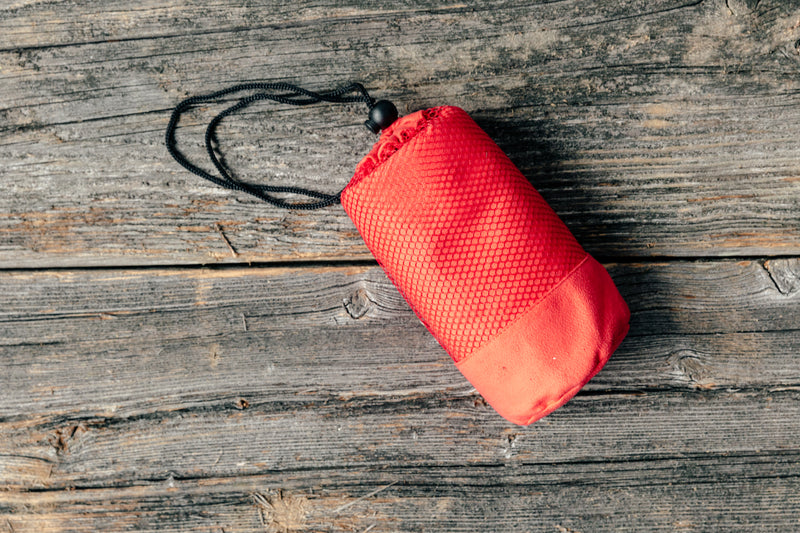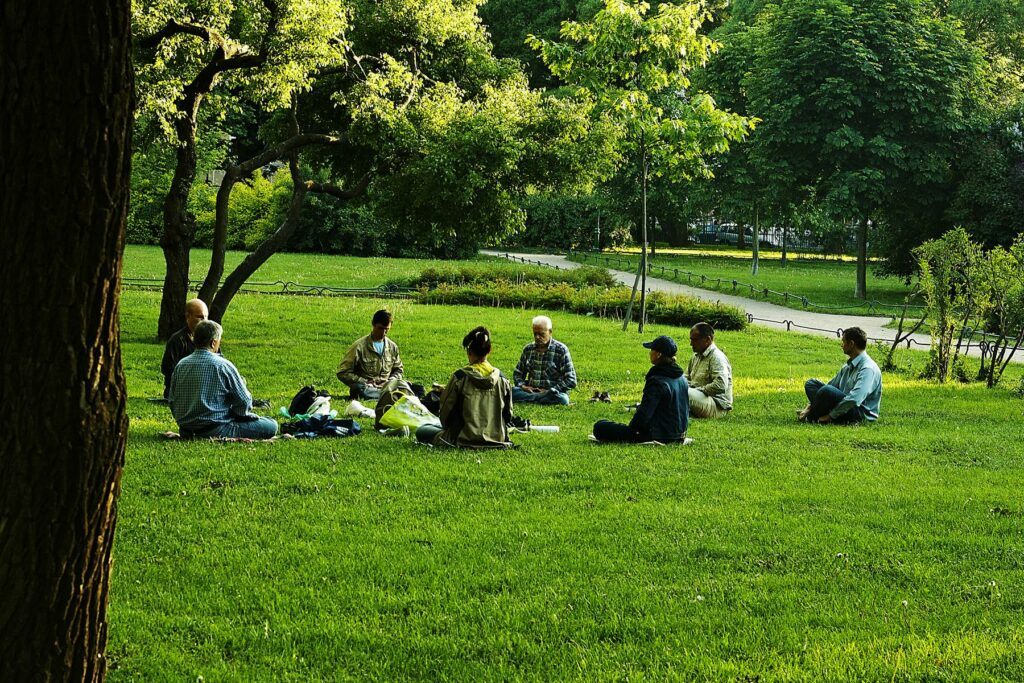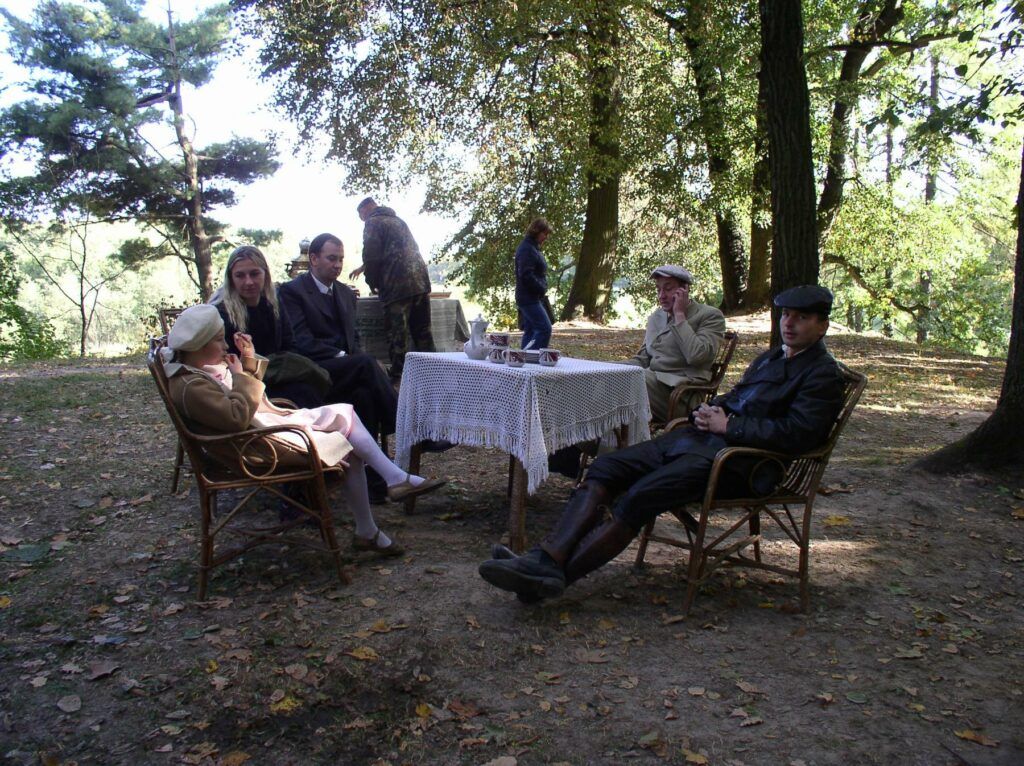Have you ever noticed how refreshed and revitalized you feel after spending a few days in nature? Maybe it’s the fresh air, the sound of birds chirping, or the lack of technology that does the trick. But did you know that camping can have incredible mental health benefits as well? In this blog post, we’ll explore just how impactful spending time outdoors can be for your mind, and how you can unlock those benefits on your next camping trip. Get ready to discover a whole new level of relaxation and rejuvenation!

The Science Behind the Mental Health Benefits of Camping
Mental health benefits of camping have been studied extensively, and the results are clear: spending time in nature can have a profound impact on our mental wellbeing. Research has shown that exposure to green spaces can reduce symptoms of depression and anxiety, lower stress levels, and improve cognitive function. One study found that just 20 minutes in a park can boost mood and self-esteem. Camping takes this a step further by immersing us in nature for extended periods of time, allowing us to disconnect from the stresses of daily life and fully engage with our surroundings. This can lead to a sense of calm and relaxation, as well as increased feelings of awe and wonder. The benefits of camping on mental health are not just anecdotal; they are backed by science.

How Camping Can Help Reduce Stress and Anxiety
Reduce Stress and Anxiety with a Camping Trip
Camping provides an unparalleled opportunity to unplug from the stresses of daily life, reducing stress levels and promoting relaxation. Spending time in nature can help activate our parasympathetic nervous system, which is responsible for inducing calmness and decreasing feelings of anxiety.
Furthermore, camping allows individuals to disconnect from technology and social media platforms that often contribute to anxiety-inducing feelings of being constantly connected or missing out on events. Being in nature helps people gain perspective on their problems and put things in proper context.
As we engage in outdoor activities such as hiking, fishing or stargazing, it shifts the focus away from stressful thoughts and fosters mindfulness. The calming effect of natural surroundings combined with physical activity releases endorphins that promote happiness.
Overall, camping can be an effective tool for managing stress and anxiety, improving mood by providing a sense of achievement upon completion of tasks like setting up camp or starting a fire.
Exploring the Connection Between Nature and Mental Health
Numerous studies have shown the positive effects of nature on mental health. Being in natural environments has been linked to reduced symptoms of depression, anxiety and stress. One study found that spending time in a park resulted in improvements in cognitive function and mood for individuals with major depressive disorder.
The reason behind this connection lies in our evolutionary history. For thousands of years, humans lived as hunter-gatherers among natural landscapes. As such, we may have developed an innate affinity towards nature.
In addition to its calming effect on the mind, being surrounded by trees and other plants also provides us with opportunities for physical activity which can further boost our mood and reduce symptoms of depression. Hiking through forests or even just walking along a beach can benefit both mind and body.
Overall, incorporating more time spent outdoors into your daily routine – whether it’s camping or simply taking a walk during your lunch break – may be one powerful way to improve your mental wellbeing.
Camping as a Tool for Boosting Mood and Improving Sleep
Camping can have a significant impact on our mood and sleep patterns. Spending time in nature, away from the hustle and bustle of daily life, can help us relax and unwind. The fresh air and natural surroundings can also stimulate the production of serotonin, a neurotransmitter that helps regulate mood.
In addition to boosting mood, camping can also improve sleep quality. Exposure to natural light during the day helps regulate our circadian rhythm, making it easier to fall asleep at night. Camping also removes us from the distractions of technology and artificial lighting, allowing us to tune into our natural sleep patterns.
To maximize the mental health benefits of camping, it’s important to prioritize rest and relaxation while in nature. Make sure to get plenty of sunlight during the day and avoid using electronic devices before bed. Creating a comfortable sleeping environment with a supportive sleeping pad and cozy sleeping bag can also help improve sleep quality.

The Surprising Impact of Fresh Air and Sunlight on Mental Health
Fresh Air and Sunlight: The Surprising Prescription for Better Mental Health
Fresh air and sunlight are two powerful natural remedies that can have a significant impact on our mental health. Research has shown that spending time outdoors in the fresh air can help reduce symptoms of depression and anxiety, while exposure to sunlight can boost our mood and improve our sleep. This is because sunlight triggers the release of serotonin, a neurotransmitter that regulates mood, while fresh air helps to increase oxygen levels in the brain, improving cognitive function and reducing stress. So next time you’re feeling down or stressed, consider taking a walk outside or planning a camping trip to reap the benefits of these natural remedies.
The Science Behind How Camping Can Boost Your Mood
Fresh air and sunlight are essential for optimal physical health, but did you know they can also have a significant impact on our mental well-being? Research has shown that spending time outdoors in nature, like when camping, has been linked to increased levels of serotonin – the brain’s feel-good neurotransmitter. Sunlight exposure also stimulates vitamin D production, which is crucial for mood regulation. This means being out in nature during a camping trip can help boost your mood and keep you feeling more positive overall. It’s important to prioritize spending time in natural environments as part of your self-care routine.
Leave Stress Behind: How Vitamin D from the Sun Can Help Reduce Anxiety
Exposure to sunlight provides our bodies with an essential nutrient – vitamin D. This vitamin plays a crucial role in regulating mood and reducing anxiety symptoms. Studies have found that individuals who spend time outdoors in the sun experience lower levels of stress hormones, such as cortisol, which are associated with increased anxiety. Moreover, spending time outdoors also helps improve sleep quality, reduces inflammation and promotes overall physical health. Whether you’re camping or simply taking a walk outside, taking advantage of the benefits of fresh air and sunlight can be a powerful tool for supporting your mental wellbeing.
Nature Therapy: Why Time Spent Outdoors is Vital for Emotional Well-Being
Our bodies and minds benefit greatly from the fresh air and sunlight that camping provides. Exposure to sunlight triggers our brain’s production of serotonin which helps regulate mood, while fresh air can improve lung function and boost energy levels. In fact, research shows that spending time outdoors can decrease symptoms of depression and anxiety by reducing cortisol levels – the hormone produced in response to stress. Whether you’re hiking a trail or simply lounging at your campsite, being immersed in nature’s sights, sounds, and smells has powerful therapeutic effects on emotional well-being.

Building Resilience and Coping Skills Through Outdoor Activities
Outdoor activities such as camping can help build resilience and coping skills. When faced with challenges in nature, individuals learn to adapt and problem-solve, improving their ability to handle stressors in daily life. Camping also provides opportunities for solitude and self-reflection, allowing individuals to process emotions and develop stronger emotional regulation skills.
Participating in group outdoor activities promotes social connection, which has been shown to improve mental health outcomes. Additionally, engaging in physical activity during camping trips releases endorphins that contribute to a sense of well-being.
However, it is important to prioritize safety when participating in outdoor activities. It is recommended that individuals acquire basic survival knowledge before embarking on any camping trip. This includes understanding how to navigate with a map and compass or GPS device.
Overall, incorporating outdoor activities such as camping into one’s routine can lead to significant improvements in mental health through building resilience and coping skills while promoting physical activity and social connection.
Tips for Incorporating Camping into Your Mental Health Routine
Mental health benefits of camping are becoming increasingly recognized, and many people are now incorporating camping into their mental health routines. Here are some tips to help you get started:
- Start small: If you’re new to camping or haven’t done it in a while, start with a short trip to a nearby campground. This will allow you to test the waters and see if it’s something that works for you.
- Plan ahead: Make sure you have all the necessary gear and supplies before heading out on your trip. This includes things like a tent, sleeping bag, food, water, first aid kit, and bug spray.
- Disconnect from technology: One of the biggest benefits of camping is getting away from screens and digital distractions. Try leaving your phone behind or only using it for emergencies.
- Engage in outdoor activities: Whether it’s hiking, fishing, or simply sitting by the campfire at night, make sure to take advantage of all that nature has to offer.
- Practice mindfulness: Take time each day to be present in the moment and appreciate your surroundings. Reflecting on the beauty around you can do wonders for improving mental wellbeing.
Remember mental health benefits of camping aren’t one-size-fits-all – experiment with what works best for you!
In conclusion, camping is not just a fun activity, but it also has numerous mental health benefits. From reducing stress and anxiety to improving mood and sleep, spending time in nature can have a profound impact on our mental well-being. By incorporating camping into your mental health routine, you can build resilience and coping skills while enjoying the great outdoors. So why not give it a try? Plan a camping trip with friends or family and experience the benefits for yourself. And if you’re interested in learning more about mental health and wellness, be sure to check out our other content for helpful tips and insights.
Frequently Asked Questions
Who can benefit from the mental health benefits of camping?
Anyone, regardless of age or background, can benefit from camping’s mental health benefits.
What are the mental health benefits of camping?
Camping can reduce stress, improve mood, and increase overall well-being.
How does camping improve mental health?
Being in nature can reduce cortisol levels, increase serotonin, and boost overall mood.
What if I don’t enjoy camping?
There are other ways to reap the mental health benefits of nature, such as hiking or spending time in a park.
How long do the mental health benefits of camping last?
The effects of camping on mental health can last for weeks after the trip.
What if I can’t take time off for a camping trip?
Even a short camping trip can have mental health benefits, but spending time in nature in any way can be beneficial.



